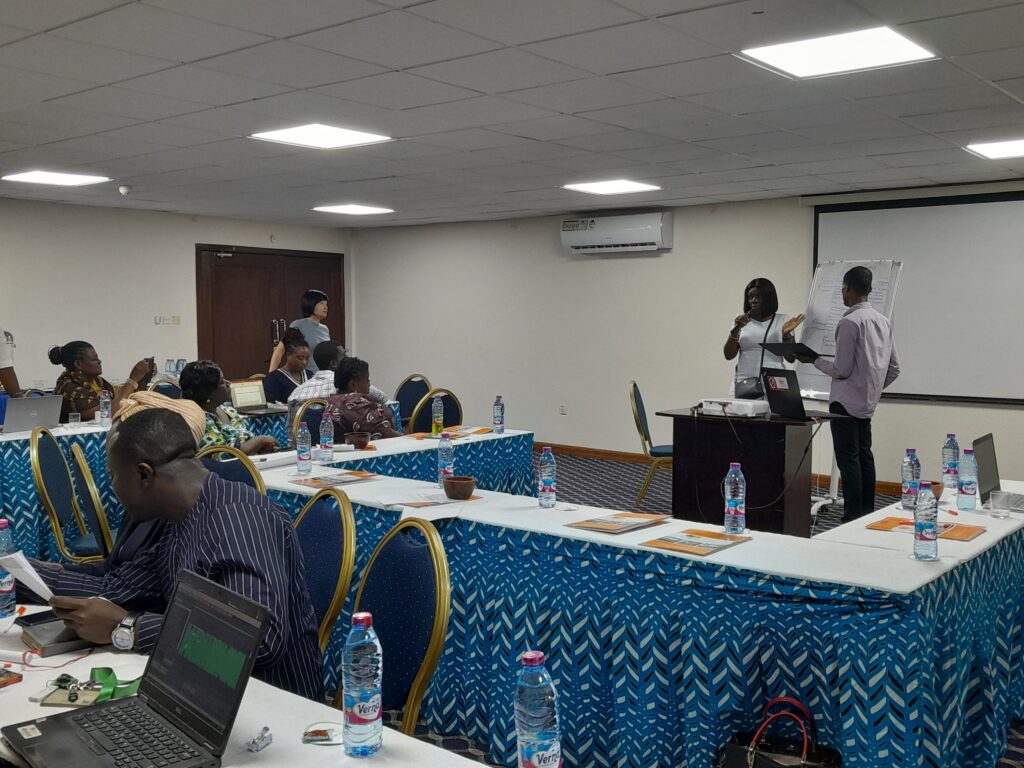Stakeholders Consultation on Draft Strategy Development Note on Ending Child Marriage in Ghana

On 26th June 2023, the Ministry of Gender, Children and Social Protection consulted stakeholders at the Presentation of a Draft Strategy Development Note on Ending Child Marriage in Ghana. Diverse departments and agencies of government, as well as Civil Society Organizations, made inputs into the strategy being spearheaded by Child Frontiers. To assess the effectiveness of existing initiatives and the persisting drivers of child marriage and related issues like teenage pregnancy, the presentation highlighted some factors that contributed to the menace and some recommendations on the strategies to adapt to suit the current conditions. These were done based on various consultations but emphasized the need for review to finalize a holistic approach to protecting the children of Ghana.
Ghana is one of 13 countries across the West and Central Africa Region participating in this project designed to make country-level responses to child marriage more strategic and effective. This initiative promises to go a long way to help adjust programming and identify gaps that will support setting priorities toward greater results.
Presentation on the state of child marriage in Ghana indicated that 19% of women aged 20-24 years were married or in a union before age 18, and 5% were married before the age of 15, (2017/2018 Multiple Indicator Cluster Survey). The data showed that the incident was more prevalent among those who reside in rural areas, live in poor households, and have little or no education. Meanwhile, it was recorded that the Northern and Upper East regions had the highest rates with Greater Accra recording the lowest per the data provided in the survey.
These numbers of child marriages per the analysis and consultations are driven by these factors.
- Poverty and economic hardships
- Insufficient education and livelihood opportunities
- Social norms and attitudes
- Adolescent Pregnancies.
- Traditional and customary practices
- Public health emergencies and
- Poor enforcement of laws that protect girls from child marriage.

Identified Gaps in Policy
- Inconsistencies in minimum age laws, like the legal age for consent to sex and marriage.
- The poor enforcement of laws that protect girls from child marriage.
- Existing policies and strategic frameworks that are not yet fully implemented.
Throughout the implementation of initiatives and interventions, Child Frontiers indicated that most strategies have focused on empowering girls with information, skills, and support networks, education and mobilization of parents and community members; promotion of girls’ education; expansion of access to reproductive health and the economic empowerment for girls and families as well as efforts to strengthen systems. However, these programs have faced challenges with sustainability, institutional coordination, finances, and scaling-up of programs.
Recommendations
The team led by Ismael E. Ddumba-Nyanzi, based on the state of child marriage in Ghana, made the following suggestions that should be considered in programming for ending child marriage.
- Improvement in targeting adolescents at risk, including in and out of -school persons;
- More investment into services beyond information and education;
- Adequate reproductive health education and contraceptives for unmarried girls;
- Strengthened social protection systems (with interventions like Free, Compulsory Universal Basic Education); and
- Adequate job skills and opportunities.
The stakeholders made several inputs including the need to refer to existing frameworks and available tools (like the Gender Transformative Accelerator Tool, and Global Program to end child marriage) in the draft strategy that was to be considered in the final version of the strategy for Ghana.
By: Mavis Naa Korley Aryee
